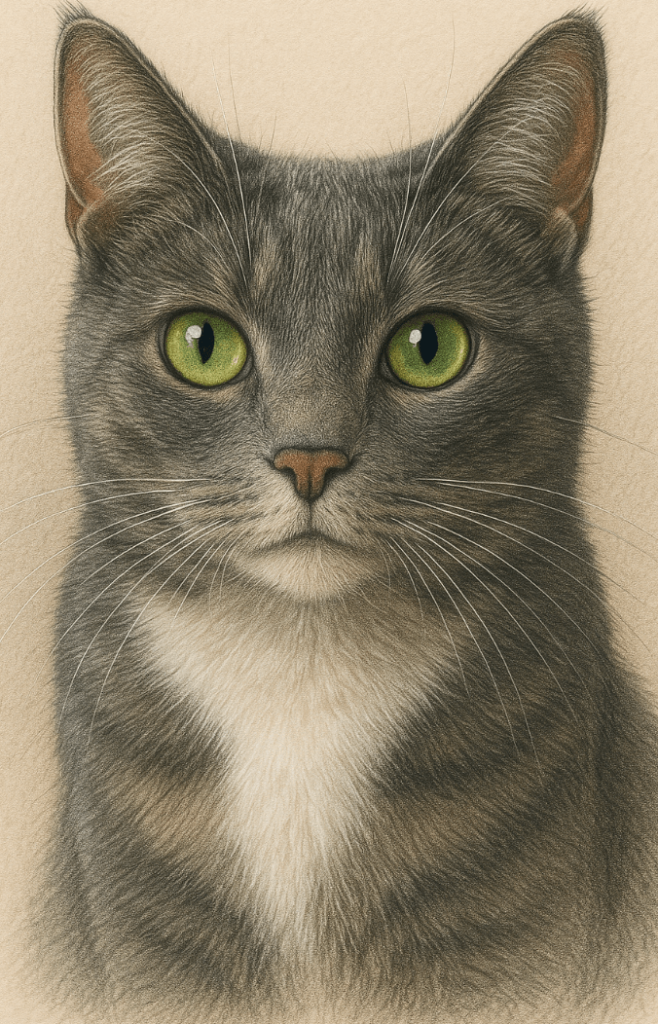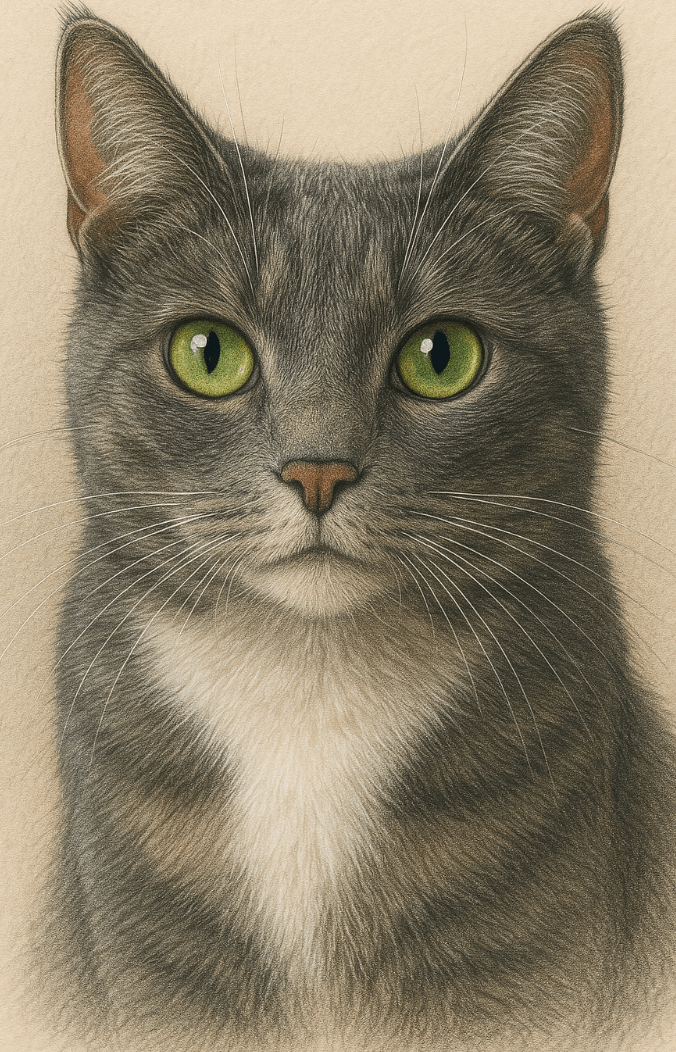Can Cats Eat Ceviche?
Ceviche, a popular seafood dish made from raw fish marinated in citrus juices, is a favorite among seafood enthusiasts. But if you’re a cat owner who loves sharing food with your feline friend, you might wonder whether ceviche is safe for cats to eat. While cats are obligate carnivores and thrive on protein-rich diets, not all human foods are suitable for them. Raw fish dishes like ceviche can pose specific risks due to their preparation methods and ingredients. In this blog post, we’ll explore whether cats can safely enjoy ceviche, the potential dangers, and safer alternatives to satisfy your cat’s cravings for seafood.
Potential Risks of Feeding Ceviche to Cats
While ceviche may seem like a natural treat for cats due to its fish content, it comes with several risks that every pet owner should be aware of. These hazards can range from digestive upset to more serious health concerns.
Raw Fish Contains Harmful Enzymes:
Raw fish often contains thiaminase, an enzyme that breaks down thiamine (vitamin B1), which is essential for your cat’s health. A deficiency can lead to neurological issues.Risk of Parasites:
Uncooked fish used in ceviche may harbor parasites like roundworms or tapeworms, which can infect your cat and cause gastrointestinal problems.Bacterial Contamination:
Raw seafood can carry harmful bacteria such as Salmonella or E. coli, posing risks to both your cat and anyone handling the food.High Sodium Content:
Many ceviche recipes include salt or seasonings, which can be harmful to cats and lead to sodium ion poisoning if consumed in excess.Citrus Juices Can Be Toxic:
The acidic marinade in ceviche, typically made from lime or lemon juice, can upset your cat’s stomach and irritate their digestive tract.
These risks highlight why ceviche is generally not recommended for cats and why caution should always be exercised when sharing human food with your pet.
Safer Alternatives to Ceviche for Cats
If your cat enjoys the taste of fish, there are safer and healthier ways to incorporate seafood into their diet without exposing them to the risks associated with ceviche.
Cooked Fish Without Seasoning:
Plain, cooked fish like salmon or tuna (free of bones, skin, and seasoning) provides a nutritious and safe option for cats.Commercial Cat Food with Fish:
High-quality cat food formulated with fish ensures your cat receives balanced nutrition without unnecessary additives or risks.Fish Oil Supplements:
Omega-3 fatty acids found in fish oil support your cat’s coat, skin, and overall health when administered in appropriate doses.Boneless, Skinless Sardines:
Sardines packed in water (not oil or brine) offer a protein-rich treat that’s easy to digest and free of harmful contaminants.Homemade Fish Treats:
Prepare small portions of plain, steamed fish at home to create a healthy snack your cat will love.
By choosing these alternatives, you can safely satisfy your cat’s craving for seafood while avoiding the dangers of raw or seasoned dishes like ceviche.
Check this guide 👉Can Cats Eat Oxtail? Best 7 Expert Tips!
Check this guide 👉Can Cats Eat Cookie Dough? Best 7 Expert Tips!
Check this guide 👉Can Cats Have Coconut Water? Best 7 Expert Tips!

Safe Seafood Options for Cats | Risks of Unsafe Seafood Choices |
|---|---|
Cooked salmon (plain, no seasoning) | Raw fish containing parasites |
Boneless, skinless sardines in water | High-sodium or oily canned fish |
Fish oil supplements (vet-approved) | Citrus-marinated dishes like ceviche |
Steamed white fish (e.g., cod or tilapia) | Fish with added spices or garlic |
Commercial cat food with fish flavor | Uncooked shellfish or seafood scraps |
Signs Your Cat May Have Eaten Something Harmful
If your cat accidentally consumes ceviche or another unsafe food, it’s important to recognize the symptoms of distress early. Watch for these signs to act quickly if something goes wrong.
Vomiting or Diarrhea:
Gastrointestinal upset is a common reaction to harmful foods and requires immediate attention if severe.Lethargy or Weakness:
A sudden lack of energy or unusual fatigue could indicate poisoning or nutrient imbalances.Loss of Appetite:
Refusal to eat may signal digestive discomfort or illness caused by ingesting unsafe food.Excessive Drooling:
Drooling can occur if your cat has consumed something irritating, such as acidic citrus juices.Behavioral Changes:
Restlessness, pacing, or hiding may suggest your cat is experiencing pain or discomfort.
Recognizing these signs early allows you to seek veterinary care promptly, preventing further complications.
How to Safely Introduce Fish to Your Cat’s Diet
If you decide to include fish in your cat’s diet, it’s essential to take precautions to ensure their safety. Follow these guidelines to avoid potential risks.
Choose Plain, Cooked Fish Only:
Avoid adding salt, spices, oils, or other seasonings that could harm your cat’s digestive system.Remove Bones and Skin:
Small bones can pose choking hazards, while skin may contain fats that upset your cat’s stomach.Limit Portion Sizes:
Fish should only make up a small portion of your cat’s diet to prevent nutritional imbalances.Consult Your Veterinarian:
Before introducing new foods, ask your vet to confirm they align with your cat’s dietary needs.Monitor for Allergic Reactions:
Some cats may have sensitivities to certain types of fish; watch for itching, swelling, or digestive issues.
By following these steps, you can safely incorporate fish into your cat’s meals without compromising their health.
Common Mistakes to Avoid When Feeding Fish to Cats
Feeding fish to your cat requires careful consideration to avoid mistakes that could endanger their health. Here are some pitfalls to watch out for.
Offering Raw or Undercooked Fish:
Raw fish increases the risk of bacterial infections and thiamine deficiency, making it unsafe for cats.Adding Salt or Spices:
Seasonings like garlic, onion powder, or excessive salt can harm your cat’s kidneys and digestive system.Overfeeding Fish:
Too much fish can lead to nutrient imbalances, particularly a deficiency in taurine, which is critical for heart and eye health.Ignoring Signs of Allergies:
Some cats may develop allergic reactions to certain types of fish; monitor closely for adverse effects.Neglecting Veterinary Advice:
Skipping a professional opinion can result in unknowingly harming your cat with inappropriate food choices.
Avoiding these mistakes ensures a safer and healthier experience for your cat.
Nutritional Benefits of Fish for Cats (When Prepared Safely)
When prepared correctly, fish can provide valuable nutrients that support your cat’s overall health and well-being.
Rich Source of Protein:
Fish contains high-quality protein, essential for muscle development and energy production in cats.Omega-3 Fatty Acids:
These healthy fats promote shiny coats, reduce inflammation, and support joint health.Hydration Boost:
Moisture-rich fish helps keep your cat hydrated, especially beneficial for those prone to urinary tract issues.Low Carbohydrates:
Unlike many processed cat foods, plain fish contains minimal carbs, aligning with a cat’s natural dietary needs.Trace Minerals and Vitamins:
Fish provides vitamins like B12 and minerals like iodine, supporting metabolic and immune functions.
When incorporated responsibly, fish can enhance your cat’s diet without compromising their health.
Understanding Your Cat’s Natural Instincts Around Fish
Cats are naturally drawn to fish due to their evolutionary history as hunters and carnivores. Understanding their instincts helps explain their fascination.
Hunting Behavior:
Wild ancestors of domestic cats would hunt fish when available, making it a natural part of their ancestral diet.Strong Sense of Smell:
The aroma of fish appeals to cats’ heightened sense of smell, triggering curiosity and interest.Craving Variety:
Cats may crave fish as a change from their usual food, driven by their instinctive desire for diverse proteins.Taste Preferences:
The umami flavor of fish aligns with cats’ preference for savory, protein-rich tastes.Mimicking Scavenging Habits:
Even though cats are hunters, they occasionally scavenge for accessible food sources, including fish.
By recognizing these behaviors, you can better address your cat’s needs in a safe and controlled manner.
Frequently Asked Questions About Cats and Ceviche
Is raw fish ever safe for cats?
No, raw fish poses risks of bacterial contamination, parasites, and enzyme-related deficiencies. Always cook fish before offering it to your cat.
What happens if my cat eats ceviche?
Depending on the amount consumed, your cat may experience digestive upset, nausea, or more severe reactions like thiamine deficiency. Contact your vet immediately.
Can kittens eat fish?
Yes, but only in moderation and under supervision. Kittens require a balanced diet and should not rely heavily on fish as a primary protein source.
Are there any benefits to feeding cats fish?
Fish is rich in omega-3 fatty acids, which promote healthy skin, coat, and joint function, but it should be fed sparingly and prepared safely.
What should I do if my cat shows signs of illness after eating ceviche?
Seek veterinary care immediately to address potential poisoning or other complications caused by the unsafe food.
Prioritizing Your Cat’s Health When It Comes to Human Foods
Feeding your cat human foods like ceviche can seem tempting, especially if they show interest in what’s on your plate. However, it’s crucial to prioritize their health and well-being over indulgence. While fish can be a nutritious addition to your cat’s diet, it must be prepared safely and in moderation. By understanding the risks of ceviche and opting for safer alternatives, you can ensure your feline friend stays happy and healthy. Remember, your cat relies on you to make the best dietary choices—so always err on the side of caution when sharing food with them.
Do Cats Have Taste Buds? Best 7 Expert Tips! – Discover how cats experience flavors and why their taste is so unique.
Do Dogs Have Taste Buds? Best 7 Expert Tips! – Discover how dogs experience taste, their preferences, and what it means for their diet and health.
Can Cats Taste Sweet? Best 7 Expert Tips! – Discover why cats can’t taste sweetness, how it affects their diet, and tips to keep them healthy and happy.
Can Dogs Taste Sweet? Best 7 Expert Tips! – Discover how dogs perceive sweetness, which foods are safe, and tips to manage their sweet cravings responsibly.





